
Star Wars Sundays kick off on August 25th with our Cineworld screening of Star Wars: Episode I - The Phantom Menace, and here's news to make you feel the Force: tickets are just £5. We're marking the occasion by celebrating the work of saga composer John Williams, the man who has long provided the franchise with its heart and soul.
The word illustrious barely covers Williams' extraordinary contribution to the franchise. Since it began in 1977, he has provided the series with its emotional heart, conjuring any number of memorable themes that add to our understanding of the characters and the universe in which they operate.
We've embarked on the (admittedly intimidating) task of ranking his 10 greatest tracks, drawn from the original, prequel and current trilogies. Will your favourite come out on top? Scroll down to find out.
10. 'Battle of Yavin' (A New Hope)
Mark Hamill is the physical embodiment of the heroic Luke Skywalker, but it's Williams who invests the character with soul. Towards the end of A New Hope, Luke is tasked with the most dangerous mission of all: destroy the Death Star and restore hope (albeit briefly) to the rebel resistance.
The 'Battle of Yavin' cue unfolds over nine enthralling minutes, taking us on a rollercoaster ride of emotions from pensive anticipation to an ear-shattering timpani crescendo at the climax, as Luke finally learns to trust in the Force. In depicting the Star Wars aerial battles, George Lucas drew inspiration from classic World War II movies, and one can definitely hear the influence of the scores from such movies (Ron Goodwin's Where Eagles Dare et al) on Williams' symphonic masterpiece.
9. 'Han Solo and the Princess' (The Empire Strikes Back)
Hands up, who teared up when they heard this classic love theme again in Star Wars: Episode VII: The Force Awakens? The piece owes its origins to The Empire Strikes Back, in which Han and Leia, despite their many differences, finally get it together. It's just a shame they're ruined by a carbonite freeze orchestrated by Darth Vader.
Williams' theme is simply gorgeous, dialling back the brass to instead emphasise flutes and strings, bringing delicacy to Harrison Ford's otherwise gruff portrayal of Han. The piece assets the late, great Carrie Fisher's timeless influence on the entire Star Wars saga.
8. 'Yoda's Theme' (The Empire Strikes Back)
It's telling that one of Williams' favourite pieces from the saga is one of the most delicate and heart-wrenching. He clearly relishes the opportunity to forgo the action and compassionately render a character in shades of decency and warmth – and the lovely theme for Yoda is emblematic of these qualities.
As unforgettably voiced by Frank Oz, Yoda initially appears to be a contradiction, a cranky old creature hiding out in the swamps of Dagobah. Yet he harbours untold reserves of Jedi wisdom (later filled in by the prequel trilogy), and it's this sense of profundity lying beneath the surface that informs Williams' theme. There's a distinctly wise sense to the string and woodwind writing, which incredibly manages to capture both the whimsical physicality of the character and his ancient abilities.
7. 'The Hologram/Binary Sunset Medley' (A New Hope)
Few images are more representative of Star Wars than Luke Skywalker on Tatooine, yearningly gazing at the binary sunset as he contemplates what his future holds. This moment defined generations of people who grew up at the time of A New Hope's release, including The Last Jedi director Rian Johnson, who says he acutely identified with Luke's odyssey as a youngster.
But it would all be for nothing without Williams' music. Again, the powerful score speaks less about what we're looking at and more about the underlying emotional truth, the surging Force theme representing both Luke's melancholy and the greatness we all know he's destined for. This track is perhaps the most famous appearance of the Force theme in the saga, setting the standard for its appearance throughout all the ensuing Star Wars movies.
6. 'Ben Kenobi's Death/Tie Fighter Attack' (A New Hope)
So famous is this piece of action music that it formed the basis of a 40-second gag in the Family Guy spoof 'Blue Harvest'. The show's creator Seth Macfarlane famously reveres film music, and Williams in particular – and it's not hard to see why.
As Luke and Han escape the Tie Fighters on the Millennium Falcon in the wake of Obi-Wan's death, Williams demonstrates his acute sense of rhythm with a repetitious action ostinato that oscillates between the strings and brass, mirroring the quick-fire tactics of our heroes.
At the same time, like so many musical pieces in the Star Wars series, it lifts a scene that might otherwise be a static representation of actors on a set, lending urgency to a life-or-death struggle. This particular track has threaded its way throughout the entire saga, including the aforementioned 'Battle of Crait' cue in The Last Jedi.
5. 'Duel of the Fates' (The Phantom Menace)
Say what you will about The Phantom Menace, it's garnished with one of the greatest Star Wars themes of all time. In the first of the prequel movies, we're witness to an early battle between Jedi and Sith that will inform the entire direction of the wider saga, which means Williams' theme brims with a sense of portent and bluster.
Known as the 'Duel of the Fates', it's a choral piece performed in Sanskrit, bringing a sense of mystique to the age-old battle between good and evil. After all, this is the central tenet of the Star Wars universe, and Williams responds in kind with a thunderous piece that pinballs us between excitement, terror and awe-inspiring beauty. When the voices are combined with Williams' typically faultless orchestral arrangements, surging and leaping in the manner of a classic lightsaber duel, it makes for an exceptional musical assault.
4. 'Throne Room/End Title' (A New Hope)
How does one transform a simple medal ceremony into one of the most life-affirming and celebratory movie scenes of all time? If you're George Lucas, you call on the services of John Williams, whose innate musical intuition builds our central trio into near-mythic status.
The brass fanfare as Luke, Han and Chewie walk towards Leia, an adaptation of the main title fanfare, is stirring enough. But as that piece draws to its triumphant conclusion, ending the first movie in the Star Wars saga, we then launch into what is the first end credits arrangement in the franchise.
The end titles cement one of Williams' main Star Wars principles, assimilating and absorbing all the main themes from the movie we've just watched into a valedictory statement of triumph. Little wonder audiences in 1977 emerged from the cinema feeling like they were walking on air.
3. 'The Imperial March' (The Empire Strikes Back)
Quite possibly the greatest villain's theme ever composed, Williams' forbidding 'The Imperial March' emerged for the first time in The Empire Strikes Back. In the earlier A New Hope, the ruthless Darth Vader was represented by an ominous brass motif rather than a full-blown statement of intent, no doubt because Williams didn't anticipate, at the time, how iconic the character would become. (Said motif from A New Hope was reprised by Michael Giacchino in the score for Rogue One: A Star Wars Story.)
The onslaught of snare drums, brass fanfares and repetitious strings in 'The Imperial March' is another testament to Williams' astonishing abilities, an all-consuming musical force that speaks directly of his power within the Empire. Like the Force theme and many others, the piece threads its way through the franchise, either foreshadowing later evil in the prequel movies, or depicting how evil coats the destiny of Kylo Ren in the latest trilogy.
2. 'Main Title/Rebel Blockade Runner' (A New Hope)
Cinema history was made in the opening moments of A New Hope, as John Williams' declamatory fanfare signalled the return of large scale, fantasy/adventure filmmaking. George Lucas' intention was to fashion a spirited, non-ironic ode to the adventure serials of his youth, and the presence of a full symphonic score was pivotal to the sense of old-fashioned nostalgia, flying in the face of mid-seventies Hollywood trends that favoured pop music and needle drops.
This was the moment where the symphonic orchestral score made a triumphant comeback on the big screen. It had never truly died in the preceding years (Williams' friend Jerry Goldsmith kept the trend going with the Oscar-winning likes of The Omen), but so expansive and big-hearted was the tone of Star Wars that it singlehandedly inspired every subsequent generation of film composer.
1. 'The Battle of Hoth' (The Empire Strikes Back)
Writing a film score cue that lasts mere minutes is one thing. Writing a beast of a track that astonishingly lasts a quarter of an hour is something else entirely – in fact, it's the kind of task that could only fall to Williams, and for that reason, the groundbreaking (and shaking) 'Battle of Hoth' makes our top spot.
We mentioned earlier in reference to the 'Battle of Crait' cue that Williams has a remarkable ability to invest us emotionally in action set-pieces. And that's exactly what happens during this pivotal moment in The Empire Strikes Back, as the Empire's At-Ats go on the assault against the struggling rebel forces.
Williams refuses to treat the scene as just another excuse for musical theatrics. Instead, he fully invests us in the rebels' struggle, making us realise what's at stake via the instrumental nuances (listen out for those rumbling pianos as the aerial squadron approaches the enemy), and also via the multitude of character themes. In the midst of conflict, Williams fashions musical identification with the likes of Luke, Han and Leia, adding emotional resonance and increasing the tension as we anticipate who will emerge from the conflict alive.
Everything resolves on an ominous note with a reprise of the 'Imperial March' as Darth Vader arrives on Hoth. The quicksilver movement from hope to defiance to bleakness beautifully encapsulates the myriad emotional overtones of The Empire Strikes Back, making it the greatest Star Wars score of John Williams' career.
Find out more about Star Wars Sundays by clicking the link below.

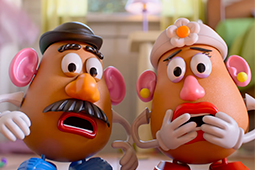
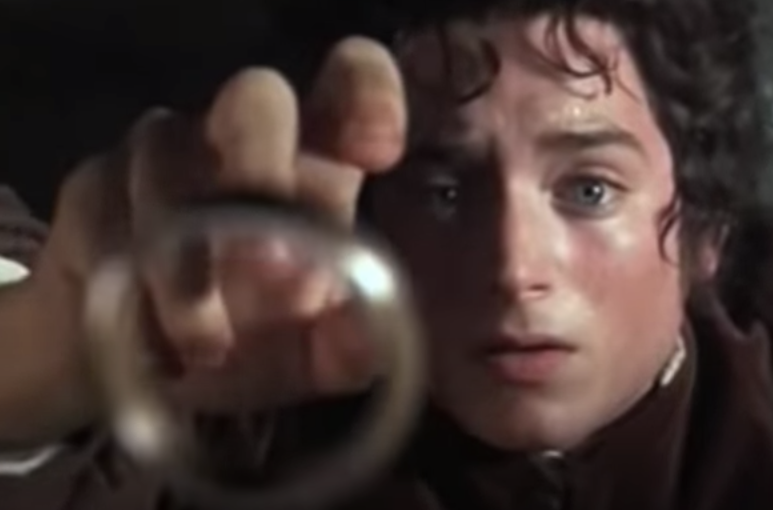


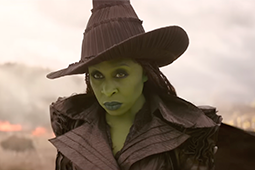
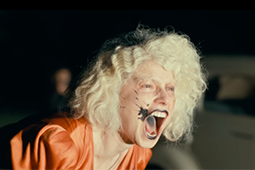
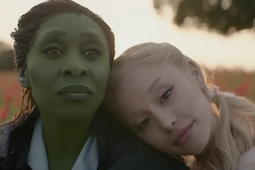

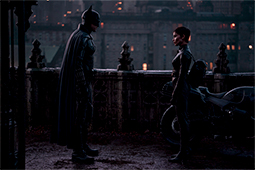


.jpg)
.png)






